Negative Pressure Room Monitoring
If you are looking for a negative pressure room monitoring system that helps you and your team eliminate manual logging, improve compliance readiness, and ensure the safety of people in your facility, you’ve arrived at the right place.
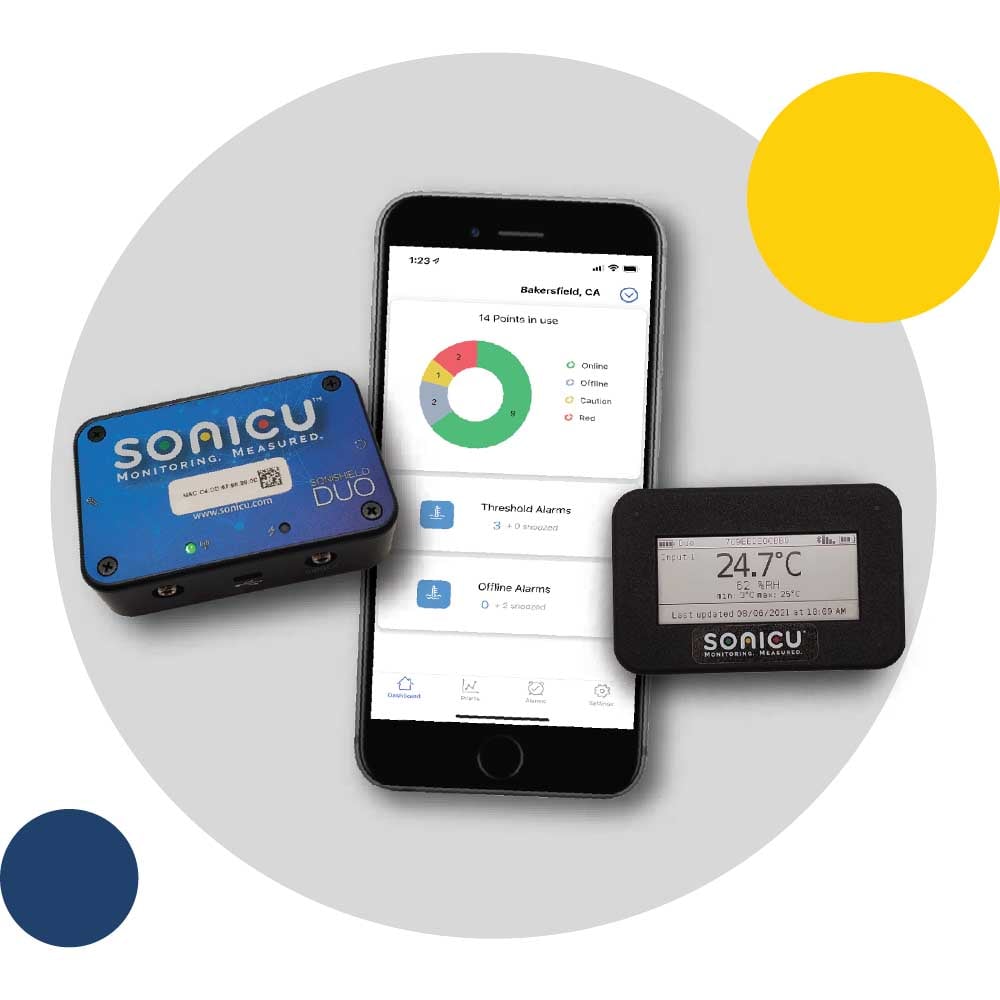
Let us help you evaluate your needs!
- Safety: Alerts via text, email, push notifications and phone calls to protect your precious assets
- Compliance: Automated compliance reports
- Efficiency: Reduced Manual Logging and time spent on reports
And what makes us different?
- Lifetime Warranty: Never buy hardware again!
- Unlimited Users: Scale across your entire organization
- Connectivity Flexibility: Wi-Fi, Cellular or Data Hub
- Phone call alarms: Alerts won't get ignored
- Mobile App: 500 Freezers in your pocket
- Facility monitoring: Simple to add water leak, door open, occupancy, and even IAQ monitoring
Engineered in Indiana with U.S.-based support.
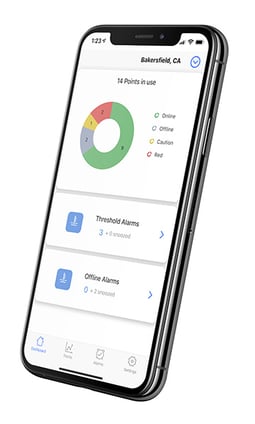
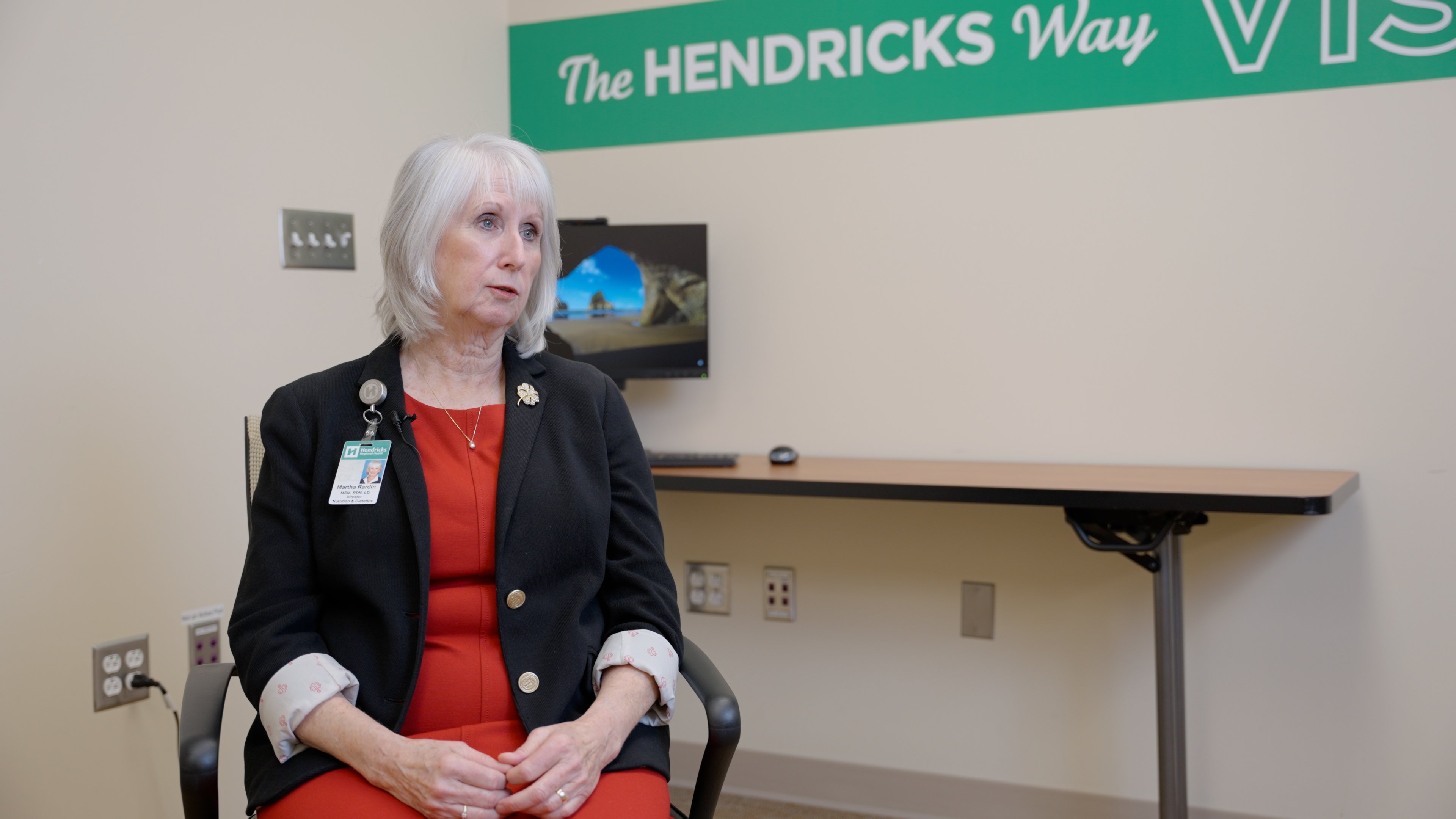
See What Customers Say About Sonicu
Asset Protection. Compliance Automation. And Reduced Manual Processes.
Sonicu serves thousands of professionals at hundreds of organizations across North America by improving how they monitor and manage their most sensitive assets and environments.
Professionals from healthcare, life science, laboratory and cold chain facility management turn to Sonicu to help them improve the way they do business.

- Real-Time Monitoring: The sensors collect temperature data and transmit it wirelessly to Sonicloud - our cloud-based platform.
- Operational Efficiency: Virtually eliminate the need for tedious and costly manual logging
- Compliance Automation: Respond to virtually any regulatory audit or inspection in a few clicks with our reports section
- Asset Protection: Detect and respond to any temperature excursion that can threaten virtually anything perishable: food, drugs, vaccines, research, etc.
Cost competitiveness, great customer service, great control over the monitoring system, and low maintenance. You can't beat that.
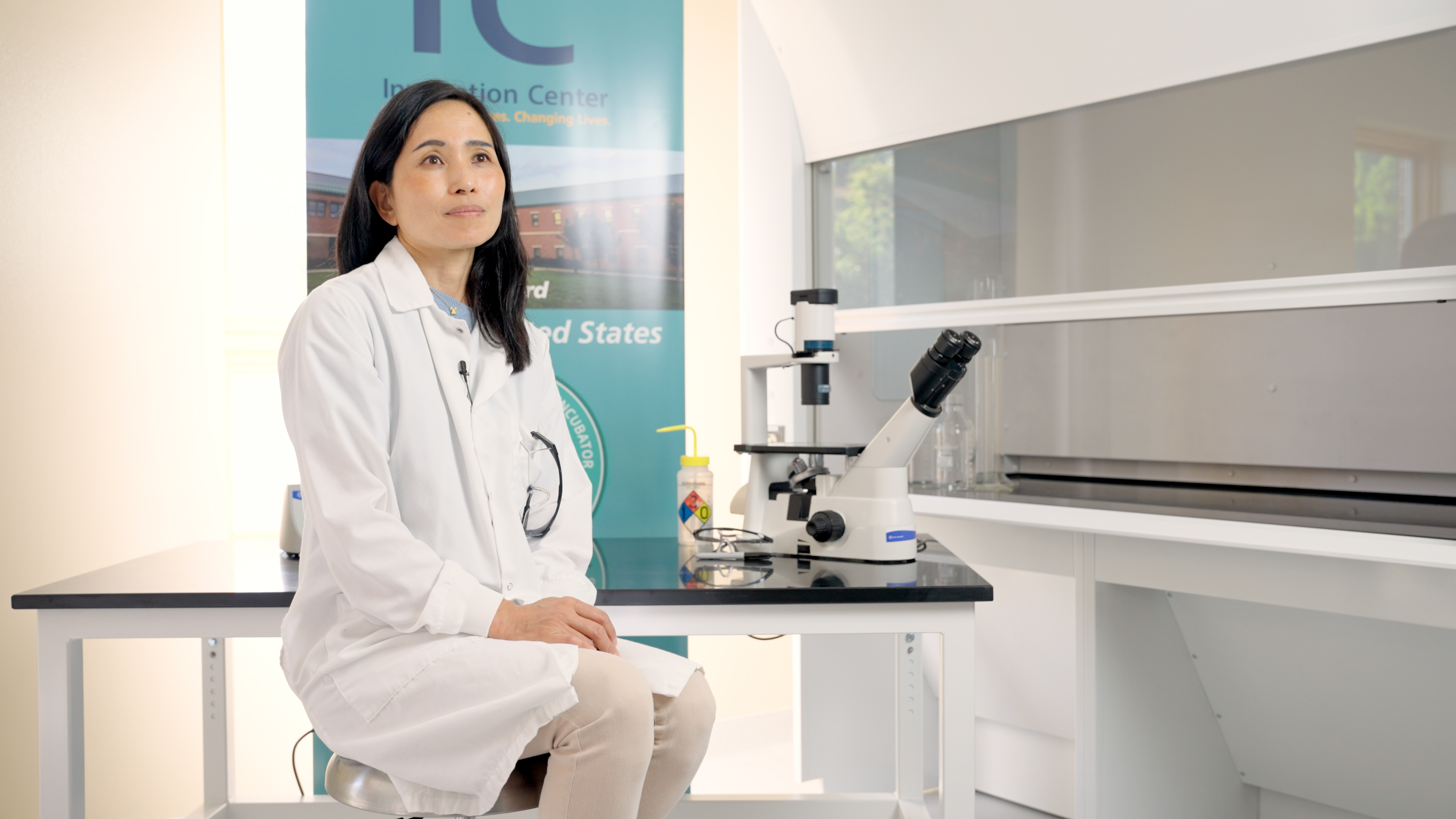
Sonicu costs are considerably more reasonable than our historic system, as well as other competitors on the market. The equipment is robust but simple to learn and utilize.

Having safe and secure storage provides reassurance that any future family building efforts will be protected. Sonicu gave us the ability to more easily put our head on the pillows and sleep easier at night knowing we had invested in a strong monitoring system.”


Negative Pressure Room Monitoring
If you are looking for a negative pressure room monitoring system that helps you and your team eliminate manual logging, improve compliance readiness, and ensure the safety of people in your facility, you’ve arrived at the right place.
Some of the finest names in healthcare and research, including Indiana University Health, University of Michigan Health System, and Stanford University, rely on Sonicu to provide robust and continuous environmental monitoring, including temperature, humidity, air pressure and more.
These respected healthcare and research brands turn to Sonicu for four primary reasons:
- Real-Time Monitoring: the sensors collect temperature, humidity, air pressure data, and more, and transmit it wirelessly to SoniCloud - our cloud-based platform.
- Operational Efficiency: Virtually eliminate the need for tedious and costly manual logging
- Compliance Automation: Respond to any regulatory audit or inspection in a few clicks with our reports section
- Asset Protection: Detect and respond to any threshold that can threaten anything perishable: food, drugs, vaccines, research, etc.
Our customers stay with us thanks to our American-based customer support, which is never more than a phone call away. While our technology is intuitive and powerful, we know it’s only as strong as the people who stand behind it.
An In-Depth Review of Negative Pressure Room Monitoring Solutions
A negative pressure room, otherwise known as an isolation room or airborne infection isolation room (AIIR), is a specialized controlled environment designed to prevent the spread of airborne contaminants, such as infectious diseases or hazardous particles.
The primary feature of a negative pressure room is that it maintains lower air pressure compared to the surrounding areas, which means that air flows from the outside into the room rather than escaping from it.
Negative pressure rooms are commonly used in healthcare facilities, especially in hospitals, to isolate patients with contagious airborne diseases like tuberculosis, influenza, COVID-19, and so on. The negative pressure prevents pathogens from escaping the room and infecting others in the hospital.
Negative pressure rooms are also utilized in research facilities, biocontainment labs, and pharmaceutical industries where potentially dangerous substances or organisms are handled. These rooms help prevent accidental releases and protect personnel from exposure.
During public health emergencies or outbreaks, negative pressure rooms can be set up as temporary isolation facilities to isolate and treat affected individuals, reducing the risk of further transmission.
Measuring and monitoring pressure levels in a negative pressure room can be essential for a number of reasons.
Monitoring the pressure levels ensures that the room is maintaining its negative pressure. This prevents contaminated air from escaping into other parts of the building. Regular measurements help identify any issues with the ventilation system or room integrity.
In healthcare settings, medical staff and caregivers frequently enter negative pressure rooms to provide care to isolated patients. By monitoring pressure levels, it can be ensured that the room is functioning correctly and protecting the staff from exposure to infectious agents.
Many healthcare standards and guidelines mandate the use of negative pressure rooms for specific infectious diseases. Regular monitoring of pressure levels ensures that facilities comply with these regulations and provide a safe environment for patients and staff.
Lastly, the ventilation systems in negative pressure rooms can occasionally malfunction, leading to changes in pressure levels. Regular monitoring allows for the early detection of such malfunctions so that they can be promptly addressed to maintain the room's effectiveness.
Negative pressure rooms play a crucial role in preventing the spread of airborne contaminants, and monitoring their pressure levels is essential to maintain their functionality and ensure the safety of both patients and healthcare workers.
Founded in 2008 in Greenfield, Indiana, Sonicu began manufacturing noise monitors to protect vulnerable infants in neonatal intensive care units and has evolved to monitor and protect a diverse set of sensitive conditions and environments including air pressure.
You can learn more about how our software helps compliance professionals in these case studies:
Problem: Too many false alarms on cryo monitoring lead to ignoring an alarm
Solution: Smart alarms that don’t produce alert fatigue
Problem: Cumbersome and costly legacy monitoring with difficult customer service
Solution: Simple and affordable solution with third-party sensor capabilities to drive down costs
Hamilton County Health Department: Vaccine Protection and Compliance.
Problem: Data loggers that lacked remote viewing capabilities and compliance automation
Solution: Remote viewing capabilities for weekend peace of mind and simple compliance
How do Sonicu's negative pressure room monitoring systems help meet the measuring and tracking requirements of healthcare facilities?
Sonicu's negative pressure monitoring systems are specialized equipment designed to meet the measuring and tracking needs of negative pressure rooms in hospitals and other healthcare settings.
These systems play a crucial role in ensuring that the rooms maintain the required negative pressure levels, providing a safe environment for patients, staff, and visitors.
The primary function of Sonicu's negative pressure monitoring systems is to measure the pressure differentials between the negative pressure room and the surrounding areas. This is typically done by using pressure sensors that continuously measure and display the pressure inside the room and compare it with the outside pressure.
High-tech negative pressure monitoring systems such as Sonicu also offer real-time tracking of pressure levels. This means that hospital staff can monitor the pressure status of the room at any given moment, allowing for immediate action if pressure levels deviate from the desired range.
Our systems are equipped with alarms and alert mechanisms. If the pressure in the negative pressure room falls below the required level, the system will trigger an alarm to notify the staff. This ensures that potential issues are detected promptly, and corrective actions can be taken.
Sonicu has designed alerts and alarms around one simple goal: ensuring you and your team receive the right message at the right time to protect your assets, staff, and clients.
Negative pressure monitoring systems often feature data logging capabilities, which record pressure readings over time. Hospitals can use this data for compliance reporting, performance analysis, and troubleshooting purposes.
Some advanced systems allow for remote monitoring, enabling hospital staff to check the negative pressure room's status from a central control room or even through mobile applications. This feature provides added convenience and improves the efficiency of monitoring multiple rooms simultaneously.
With Sonicu's advanced technology, businesses can effortlessly track and manage temperature conditions in real time, ensuring optimal product safety and quality across their operations.
To ensure patient safety, these monitoring systems often include redundancy and fail-safe mechanisms. If the primary monitoring system fails, backup systems then take over to prevent any compromise in negative pressure maintenance.
Lastly, our monitoring systems are regularly calibrated to ensure accurate pressure measurements. This is important to maintain the reliability and effectiveness of the negative pressure room.
Negative pressure monitoring systems are essential tools that help hospitals meet the requirements of negative pressure rooms by providing continuous measurement, tracking, and alerting capabilities. By using these systems, healthcare facilities can ensure that the rooms operate as intended, reducing the risk of cross-contamination and maintaining a safe environment for patients and healthcare workers.
What are the main components of Sonicu's negative pressure room monitoring system?
- Pressure sensors are the core components of the monitoring system. These sensors can be mechanical, electronic, or digital, and they convert pressure measurements into electrical signals.
- The sensors receive the electrical signals from the pressure sensors and convert them into real-time digital data.
- The alarms and alerting component utilizes audiovisual alarms and alert mechanisms to notify hospital staff if the pressure levels deviate from the required range.
- These systems often have data logging capabilities to record pressure readings over time. Many systems utilize cloud services for the secure storage of historical data.
- To enable remote monitoring and integration with other systems, the monitoring system leverages communication protocols such as Wi-Fi, Ethernet, or cellular data. Modern systems support remote monitoring through web-based interfaces or mobile applications.
- Sonicu's advanced monitoring systems incorporate redundant components and fail-safe mechanisms to ensure continuous monitoring, even if one part of the system malfunctions.
- To ensure accurate pressure measurements, the monitoring system includes calibration mechanisms that regularly check and adjust the pressure sensors' accuracy.
What are the major pain points in healthcare settings that Sonicu's negative pressure room monitoring systems resolve effectively?
Sonicu's negative pressure room monitoring systems effectively address several major pain points in healthcare settings, enhancing patient safety, infection control, and the overall efficiency of healthcare facilities.
One of the primary pain points in healthcare settings is the risk of infectious diseases spreading from patient to patient or between patients and healthcare workers.
Negative pressure rooms with monitoring systems create an isolated environment that prevents the spread of airborne pathogens, such as tuberculosis, influenza, and other contagious diseases, reducing the risk of cross-contamination.
Healthcare facilities need to be prepared for unexpected airborne disease outbreaks, such as the COVID-19 pandemic. Negative pressure rooms with monitoring systems allow hospitals to quickly isolate and treat affected patients, minimizing the potential impact on other patients and staff.
Healthcare workers face higher risks of exposure to infectious agents while caring for patients with contagious diseases. Negative pressure rooms with monitoring systems help protect the healthcare staff by ensuring that potentially contaminated air is confined within the isolated room and not allowed to escape into the surrounding areas.
Many healthcare standards and guidelines require the use of negative pressure rooms for specific infectious diseases. Having a monitoring system in place helps hospitals comply with these regulations and ensures that the negative pressure rooms are operating as intended.
Negative pressure rooms consume significant resources, such as energy for HVAC systems and maintenance costs. Monitoring systems allow hospitals to optimize the usage of these resources by ensuring that the rooms are operating at the required pressure levels and detecting and addressing any issues promptly.
Sonicu's monitoring systems continuously track pressure differentials and provide real-time alerts in case of any deviations. This early detection of malfunctions allows maintenance staff to promptly address issues with the ventilation system or room integrity, minimizing downtime and potential risks.
Sonicu's advanced monitoring systems offer remote monitoring capabilities, allowing hospital staff to oversee multiple negative pressure rooms from anywhere. This remote management streamlines the monitoring process and enhances staff productivity.
With our data logging capabilities, the negative pressure data is collected and stored over time. This data can be used for performance analysis, compliance reporting, and identifying trends that may require further attention or improvement.
Negative pressure rooms play a critical role during public health emergencies. Sonicu ensures that these rooms are always ready for use and can be quickly activated to respond to sudden outbreaks or disasters.
Sonicu's negative pressure room monitoring systems help healthcare settings effectively manage infectious diseases, improve patient and staff safety, maintain compliance with regulations, and optimize resource utilization, making them valuable assets in modern healthcare facilities.
You can learn more about how our software helps compliance professionals in these case studies:
Problem: Pharmacy Suffered Too Much Humidity In New Wing, impacting Compounding Pharmacy
Solution: Affordable Humidity Monitoring that Delivered Powerful data to prompt contractors to fix improperly sized air handler
Problem: The dining department struck with regulatory violations
Solution: Enterprise-wide monitoring that automates regulatory compliance across all departments
Problem: Release of lead particles in battery projects
Solution: Mobile, affordable air pressure monitoring solution
There are many benefits to implementing a high-tech pressure monitoring solution such as Sonicu.
- The primary advantage of negative pressure room monitoring systems is their ability to enhance infection control. These systems help prevent the spread of airborne contaminants, reducing the risk of cross-contamination between patients and healthcare workers.
- Negative pressure rooms provide a safe environment for patients with infectious diseases, ensuring they receive appropriate care without posing a risk to others.
- Healthcare workers are protected from exposure to airborne pathogens when caring for isolated patients in negative pressure rooms, leading to improved staff safety.
- Monitoring systems help hospitals meet regulatory requirements for managing patients with contagious diseases, ensuring compliance with healthcare standards.
- Continuous monitoring allows for the early detection of malfunctions or deviations in pressure levels, enabling prompt maintenance and minimizing downtime.
- The data collected by monitoring systems can be analyzed for performance improvement, better resource allocation, and compliance reporting.
Embracing Safety and Infection Control: The Power of Negative Pressure Room Monitoring Solutions
In a world where health crises can strike unexpectedly, hospitals and healthcare facilities must stay ahead of the game when it comes to infection control.
Fortunately, cutting-edge technology has provided us with a powerful ally in the form of negative pressure room monitoring solutions.
From battling airborne infections to safeguarding the well-being of both patients and frontline heroes, these systems have proven to be indispensable in the fight for a safer, healthier world.
Negative pressure systems are at the forefront of infection control, creating isolated environments that halt the spread of contagious diseases in their tracks.
By ensuring the proper containment of airborne pathogens, they offer a level of protection that's second to none, both for patients and the dedicated healthcare professionals who tirelessly care for them.
By harnessing the power of technology, you can bolster infection control measures, protect your employees, and ensure the safety of everyone who walks through your front door.
Let's embrace the future of healthcare - a future that's safer, stronger, and more resilient than ever before. The time to act is now, and the power of negative pressure room monitoring solutions awaits your call. Let's protect lives, let's protect each other, and let's pave the way for a healthier tomorrow.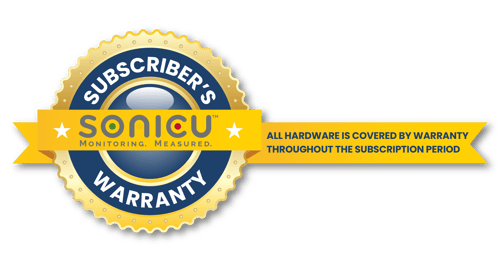
American-based Customer Support: Robust & Reliable High Touch Service
Experience Unparalleled Service with Sonicu's Dedicated Team
At Sonicu, we understand that the true value of software and technology lies in the people who stand behind them.
Our probes and sensors are purposefully designed to withstand the harshest frozen environments, working tirelessly to collect and transmit billions of bits of data every month.
We recognize that even with the most advanced technology, occasional hiccups can occur, whether it's on the hardware or software side. But rest assured, our commitment to you is unwavering.
That's why we take pride in our team of dedicated American-based customer success managers, always ready to assist you with any service issues. With Sonicu, help is just a phone call away, ensuring a seamless experience for our valued customers.
Our customers are highly educated and protect highly valuable assets with our solutions. We boast more than 95 percent customer retention thanks to our reliable hardware, intuitive software and robust customer support.
At Sonicu, we prioritize customer satisfaction and swiftly address any support request that comes our way. Our responsive team is dedicated to resolving issues promptly and getting our customers back online without delay.
We are committed to fielding every customer service request promptly and getting our customers online rapidly.
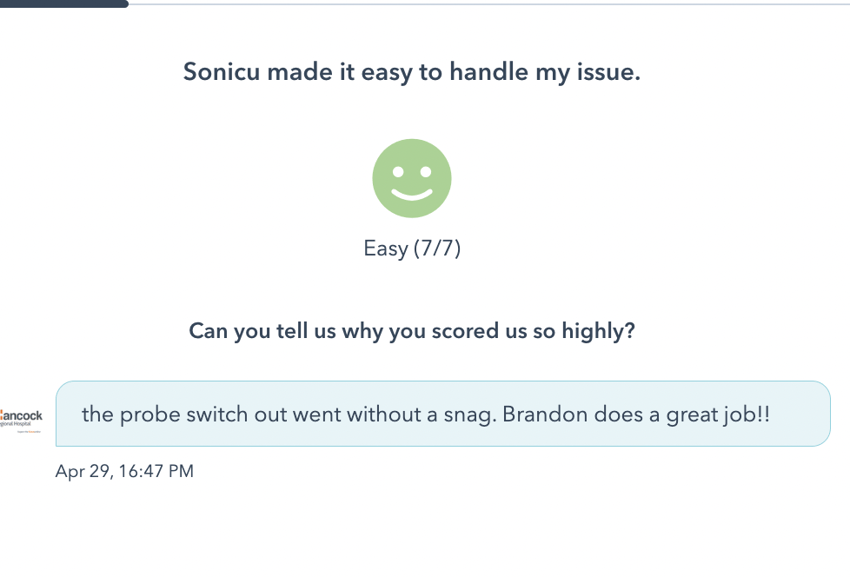
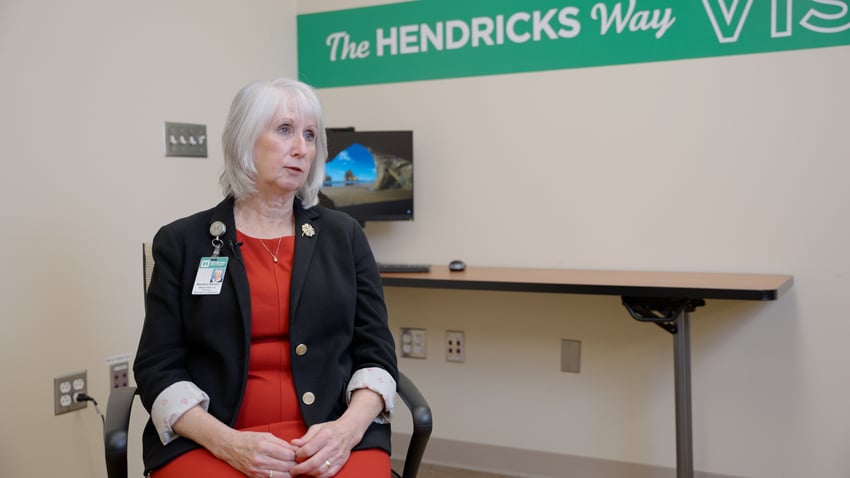 “I like to say that every refrigerator or freezer is like a car in that they all behave a bit differently,
“I like to say that every refrigerator or freezer is like a car in that they all behave a bit differently,
and then every now and then you just get a bad boy who doesn’t want to perform as we need it to,”
Martha Rardin, Director, Nutrition and Dietetics, Hendricks Regional Hospital.
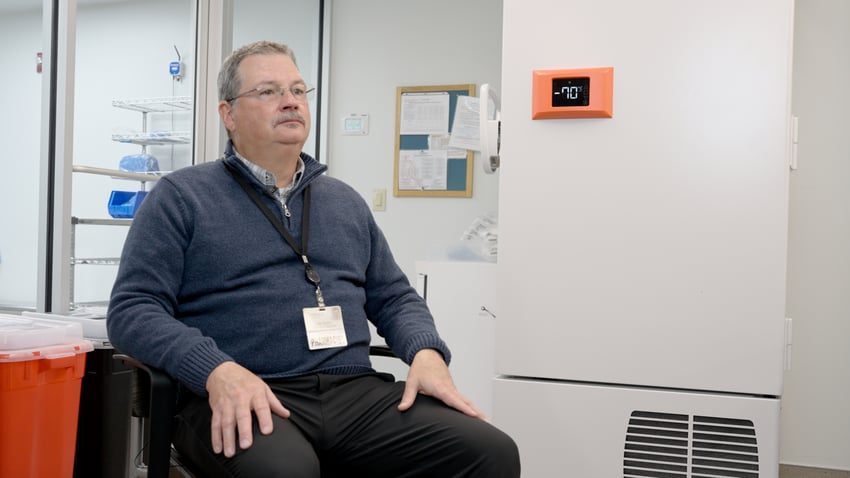 “Sonicu has been a powerful tool to identify which units are behaving out of spec and get our team
“Sonicu has been a powerful tool to identify which units are behaving out of spec and get our team
to fix them before we have a serious issue.”
Tim Livesay, Director, Hancock Regional Hospital Pharmacy Director


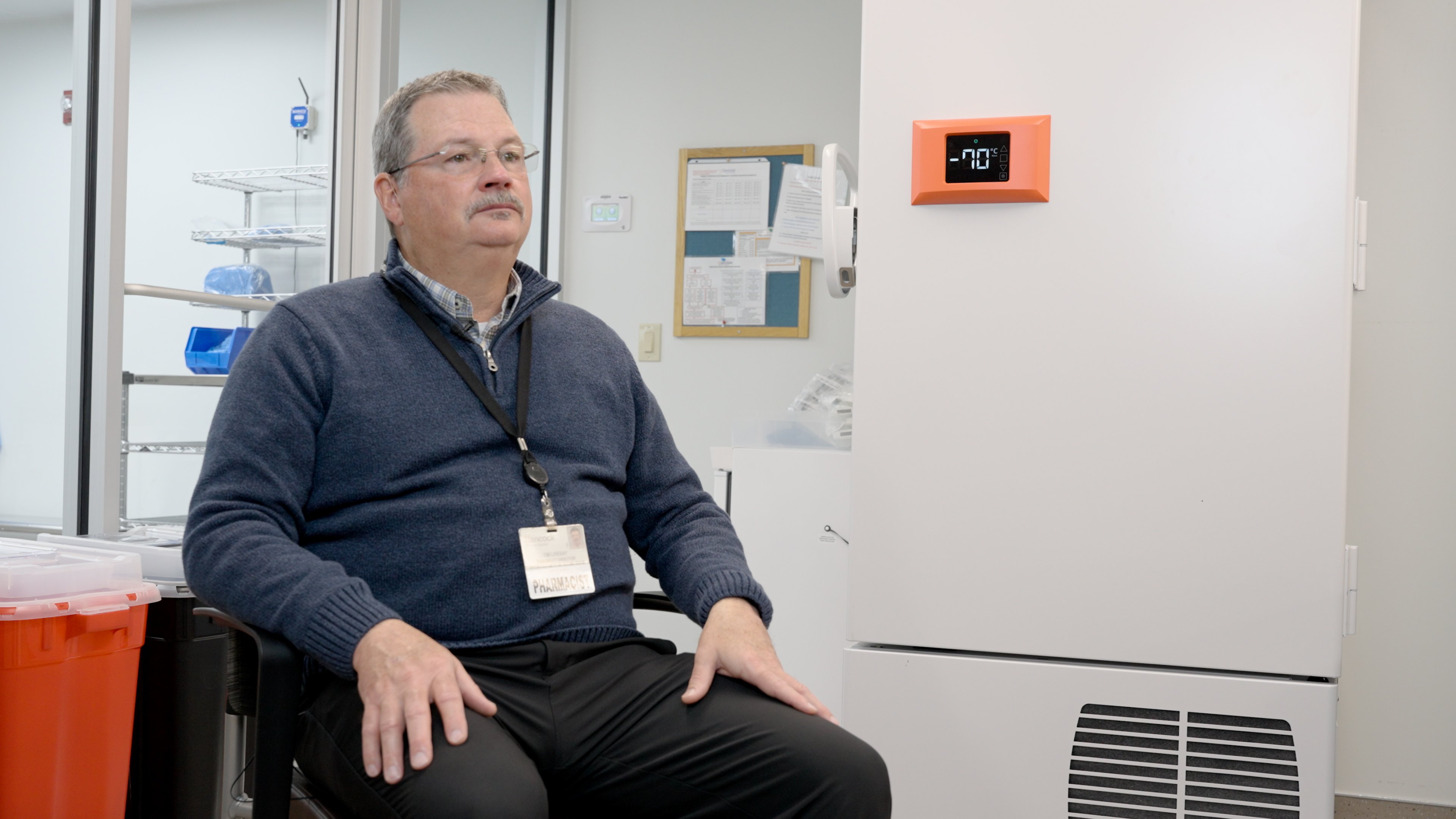
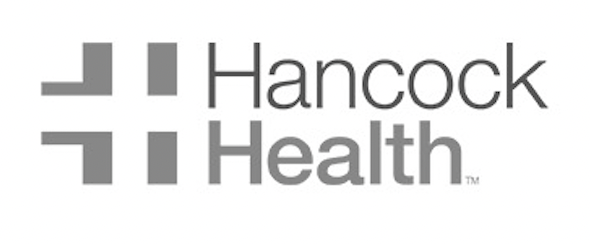




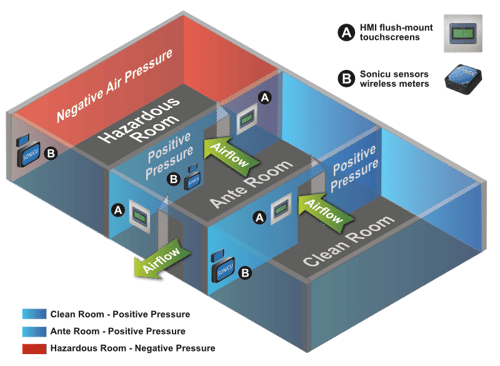
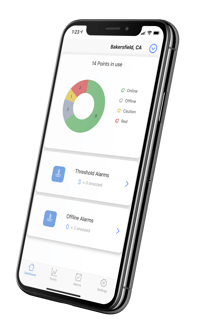
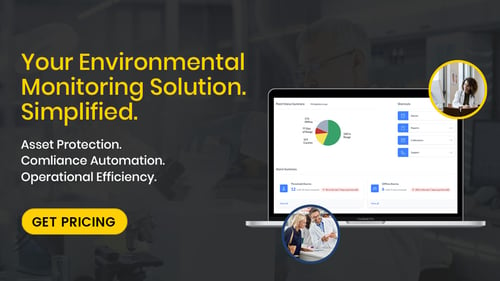


We realized there had to be a better way and went in search of technology that could give us that level of monitoring that would keep our patients safe. Sonicu made it easy and we grew across the entire hospital.